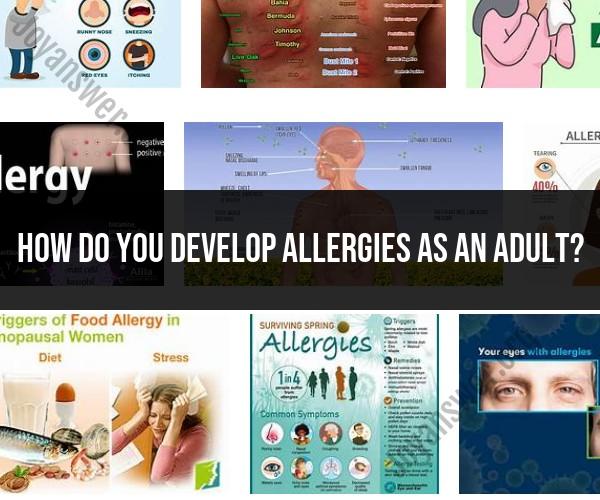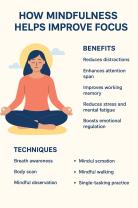How do you develop allergies as an adult?
Adult-onset allergies, also known as late-onset allergies, are allergic reactions that develop for the first time in adulthood, usually after the age of 18. While allergies are often associated with childhood, it is possible for individuals to develop new allergies later in life. Understanding the development and triggers of adult-onset allergies is important for proper management and treatment. Here's an overview:
Development of Adult-Onset Allergies:
Immunological Changes: The immune system plays a central role in allergies. Changes in the immune system's response to certain substances can lead to the development of allergies in adulthood.
Genetic Factors: Genetic predisposition can influence whether an individual develops allergies. A family history of allergies can increase the likelihood of developing allergies later in life.
Environmental Exposures: Prolonged or increased exposure to allergens, pollutants, or irritants may contribute to the development of allergies. Environmental factors can sensitize the immune system over time.
Common Triggers of Adult-Onset Allergies:
Pollen: Pollen from trees, grasses, and weeds can trigger seasonal allergic rhinitis (hay fever) symptoms in adults.
Dust Mites: Dust mites, tiny organisms found in household dust, can cause allergies characterized by sneezing, runny nose, and congestion.
Mold Spores: Mold spores that thrive in damp environments can lead to respiratory allergies when inhaled.
Pet Dander: Exposure to pet allergens, such as proteins found in skin cells, fur, or saliva, can lead to allergic reactions in adults who were not previously allergic.
Insect Allergens: Allergies to insect stings, such as from bees, wasps, or ants, can develop in adulthood.
Foods: While most food allergies develop in childhood, some adults may experience new allergies to foods they previously tolerated.
Medications: Adults can develop allergies to certain medications, including antibiotics, non-steroidal anti-inflammatory drugs (NSAIDs), and more.
Latex: Allergies to latex, commonly found in rubber gloves and medical equipment, can develop in healthcare workers or individuals with frequent latex exposure.
Diagnosis and Management:
Consult an Allergist: If you suspect adult-onset allergies, consult an allergist or immunologist. They can perform allergy testing to identify specific triggers.
Avoidance: Once triggers are identified, allergists recommend avoiding allergens whenever possible.
Medications: Over-the-counter or prescription medications, such as antihistamines and nasal corticosteroids, can help manage allergy symptoms.
Allergy Shots (Immunotherapy): Allergy shots may be recommended for individuals with severe allergies. They involve regular injections of small amounts of allergens to gradually desensitize the immune system.
Lifestyle Modifications: Making changes in your environment, such as using allergen-proof bedding, maintaining cleanliness, and keeping windows closed during peak pollen seasons, can help reduce exposure.
It's important to remember that adult-onset allergies can be effectively managed with the guidance of a healthcare professional. If you suspect you have developed new allergies as an adult, seek medical evaluation to determine the triggers and receive appropriate treatment.













